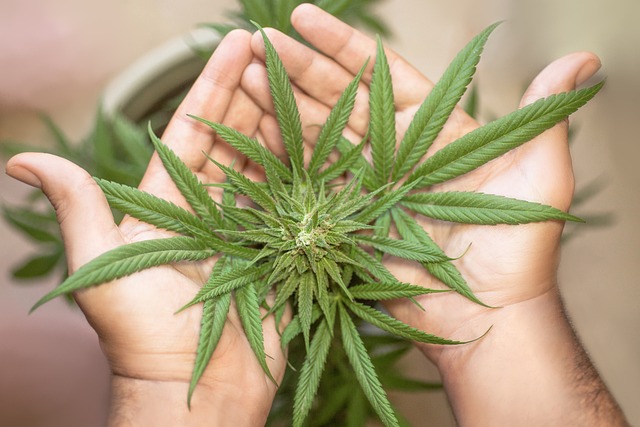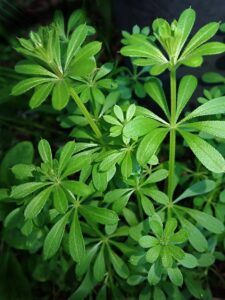
🌿 THCA flower, abundant in betacomplex cannabinoids, is gaining attention for its potential anti-inflammatory benefits. As the non-psychoactive precursor to THC, THCA interacts with the endocannabinoid system, which plays a key role in regulating pain, inflammation, and immune responses. This interaction suggests that THCA could provide relief from inflammatory conditions without psychoactive side effects. Studies indicate that THCA's anti-inflammatory properties stem from its ability to inhibit enzymes linked to inflammation. As a natural alternative, THCA flower is under investigation for treating inflammatory conditions within the holistic health realm. The ongoing research into THCA flower underscores its promise as a therapeutic agent, emphasizing its anti-inflammatory effects and expanding its potential applications in health and wellness. #THCAFlowerAntiInflammatoryEffects
Explore the intricate world of THCA (Tetrahydrocannabinolic Acid) flower, a non-psychoactive cannabinoid gaining recognition for its potent anti-inflammatory effects and myriad health benefits. This comprehensive article delves into the essence of THCA flower, from its origins to its cultivation and potential therapeutic applications. We will unravel the chemical complexity that makes THCA a preferred medicinal compound, explore its place within the cannabis spectrum, and discuss the scientific studies that underscore its anti-inflammatory action. Join us as we navigate through the legal landscape, consumer experiences, and future research directions for this burgeoning wellness resource. Whether you’re a curious patient, an industry aficionado, or simply seeking to understand the nuances of THCA flower, this article aims to provide a clear and informative overview.
Unraveling THCA Flower: An Overview

Betacomplex-rich cannabinoids like THCA flower have garnered significant attention for their potential health benefits. Tetrahydrocannabinolic acid (THCA) is the non-psychoactive precursor to the well-known compound THC and has been studied for its anti-inflammatory effects. Research indicates that THCA may exert its therapeutic properties by interacting with the body’s endocannabinoid system, which plays a role in regulating pain, inflammation, and immune responses. This interaction could potentially offer relief from conditions characterized by excessive inflammation, without the psychoactive side effects often associated with THC. The anti-inflammatory properties of THCA are believed to stem from its ability to inhibit key enzymes responsible for causing inflammation in the body, offering a promising avenue for natural relief and wellness. As such, THCA flower is being explored as a potential alternative treatment option for those seeking natural ways to manage inflammatory conditions, with ongoing research continuing to unveil its multifaceted benefits.
The Origins and Evolution of THCA

delta-9-tetrahydrocannabinolic acid (THCA) is the non-psychoactive precursor to THC, the primary psychoactive component of the Cannabis sativa plant. While both THC and THCA are found in cannabis flowers, THCA has garnered attention for its potential therapeutic properties, including its anti-inflammatory effects. The origins of THCA trace back to ancient civilizations where cannabis was cultivated for various uses, ranging from medicinal to textile. Over centuries, the selective breeding and crossbreeding of cannabis plants have led to the development of strains with varying levels of THCA. This evolution has been influenced by both environmental factors and human selection, resulting in a diverse array of cannabinoids and terpenes that contribute to the plant’s complex pharmacological profile.
The evolution of THCA within the cannabis genome is a testament to natural selection and human cultivation practices. As research advances, scientists are uncovering the mechanisms by which THCA exerts its anti-inflammatory effects. These studies reveal that THCA interacts with the body’s endocannabinoid system, particularly the CB2 receptors associated with regulating inflammation and pain responses. This interaction suggests a promising role for THCA in treating various inflammatory conditions, without the psychoactive side effects typically associated with its decarboxylated form, THC. The therapeutic potential of THCA continues to be explored, with ongoing research focusing on its anti-inflammatory properties and other health benefits.
The exploration into the properties of THCA flower sheds light on its potential as a natural remedy, particularly for its anti-inflammatory effects. The historical context and evolutionary journey of THCA provide a foundation for understanding its biological mechanisms and therapeutic applications. As future studies continue to unveil the full scope of benefits associated with this compound, it is clear that THCA flower holds promise in various health and wellness practices.






